(Page créée avec « Gather 3 transversal battens from the wooden box (1 short / 2 long) et use them to make a T-shaped lever (around 25cm - 10 inch long). Attach those 3 pieces with some glue. ») |
(Page créée avec « Anchoring the nail ») |
||
| Ligne 59 : | Ligne 59 : | ||
}} | }} | ||
{{Tuto Step | {{Tuto Step | ||
| − | |Step_Title= | + | |Step_Title=Anchoring the nail |
|Step_Content=*Bloquer le clou entre les têtes des 2 vis, en faisant un peu dépasser la pointe du clou (limé). Sur la tranche de la planche, mettre une vis à la perpendiculaire du clou. L'élastique viendra s'enrouler autour de la pointe du clou et de la vis. | |Step_Content=*Bloquer le clou entre les têtes des 2 vis, en faisant un peu dépasser la pointe du clou (limé). Sur la tranche de la planche, mettre une vis à la perpendiculaire du clou. L'élastique viendra s'enrouler autour de la pointe du clou et de la vis. | ||
Version du 5 avril 2020 à 18:30
Description
Thrifty water point to make your children love washing their hands
Introduction
This tiny water point entirely made of recuperation materials allows children to wash their hands in the most thrifty, self-directed and hygienic way.
Instead of turning on the tap and using a lot of water, your child will lift a lever with his/her own wrists and use a water trickle, just enough to wet her/his hands and rince them.
Inspiration : This system was freely inspired by the "CANACLA", made with clay in Dakar (http://canacla.com/blog/?page_id=115).
The word "Canari" in western Africa names a traditional vessel made of clay. Jacques Vanhercke used one of those traditional container to invent the "Canacla" (For "Canari" plus "Clapet", which means "valve" in french). It's indeed because of a valve and of a thin hose which simply goes through the wall of the canari that the water gently flows out the Canacla, right when your wrists open the valve by lifting up the lever (Therefore : Your hands don't touch anything !)
Interest by this concept, we thought about an easy to make solution, that our 3 years old son could also use on his own. Though we built this system with wastes gathered around our neighbourhood (plastic bottles, wooden boxes, battens, etc.). We replaced the valve with a crimped hose to make the whole system even easier to build.
What can I use it for ?
This water point can be installed in your bathroom, if it doesn't have a sink, or in your kitchen (mounted on the wall).
It can also be used outside, in a garden and also during local events, like a school fête for example. It can then be hung to a tree or a streetlight with straps. Its height can then easiliy be adjusted to the one of children.
Matériaux
1 wooden box
1 plastic bottle
1 wooden batten
1 small wooden plank (6x8 cm - 2,37x3,15 inch)
1 piece of iron wire
1 thin silicone tube (ex : baby nose cleaner, breast pump ...)
1 elastic
1 big nail (7 to 8 cm - 2,75 to 3,14 inch)
A few screws
1 staple
Outils
Hammer, screwdriver, drill, wood saw, cutter
Étape 1 - Lever's completion
Gather 3 transversal battens from the wooden box (1 short / 2 long) et use them to make a T-shaped lever (around 25cm - 10 inch long). Attach those 3 pieces with some glue.
Étape 2 - Anchoring the nail
- Bloquer le clou entre les têtes des 2 vis, en faisant un peu dépasser la pointe du clou (limé). Sur la tranche de la planche, mettre une vis à la perpendiculaire du clou. L'élastique viendra s'enrouler autour de la pointe du clou et de la vis.
- Coller/visser le bout de planche sur la latte de lit (au niveau du 1/4 inférieur).
Étape 3 - Positionnement du levier
- Récupérer un "angle" de la cagette et le coller/visser sur la latte de lit, au dessus du bout de planche.
- Positionner le levier dessus, de façon à permettre à un enfant de glisser ses mains. Marquer puis percer 2 petits trous dans le levier à la hauteur du clou.
- Visser le levier sur l'angle de la cagette et faire passer le fil de fer dans les trous. Entourer le clou avec chaque extrémité du fil de fer. (NB : le fil de fer doit être tendu).
Étape 4 - Mise en place du tuyau et de la bouteille
- Découper le fonds de la bouteille. Percer son bouchon à un diamètre un peu inférieur au tuyau. Insérer le tuyau en force et le laisser dépasser d'1 cm dans la bouteille.
- Positionner la bouteille sur la latte, au dessus du levier. Ajuster la longueur du tuyau.
- Fixer la bouteille avec 2 fils de fer, tenus par 4 vis.
- Faire passer le tuyau sous le clou et le maintenir sur la tranche de la planche avec une agrafe. Mettre l'élastique en place (autour du clou et de la vis) et régler sa tension pour que le tuyau soit pincé.
Étape 5 - Finitions
Selon l'endroit où on souhaite installer le point d'eau, on peut ajouter un récipient (cuvette, seau ou saladier...) muni d'un tuyau en guise de "lavabo". On peut également recueillir l'eau sale dans un seau pour arroser des plantes ou nettoyer des toilettes sèches (dans notre cas).
Il est aussi possible d'"habiller" le petit point d'eau afin de cacher les bouteilles et de le rendre ainsi esthétique. Un "coffrage" en cagette sera facile à faire et assez joli.
Notes et références
Association BricoLowtech :
bricolowtech@gmail.com
https://www.facebook.com/BricoLowtech/
Inspiré par : le canacla de Jacques Vanhercke
http://canacla.com/blog/?page_id=115
Published
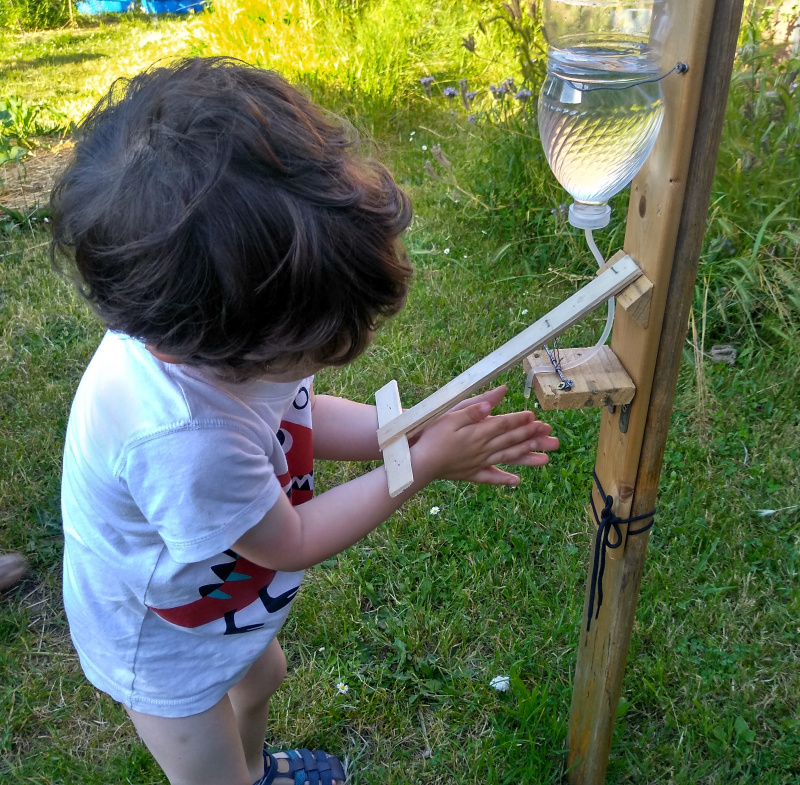
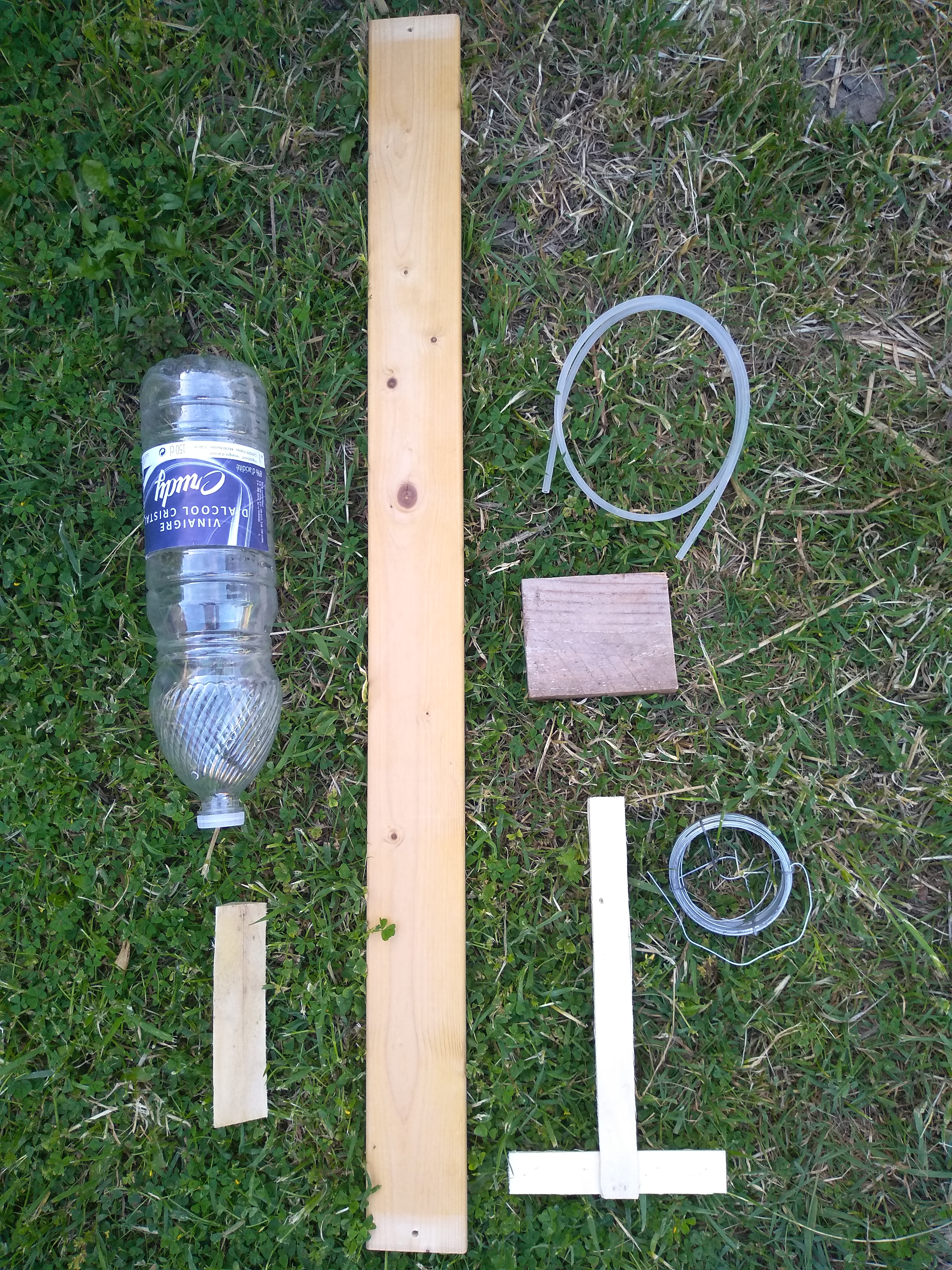
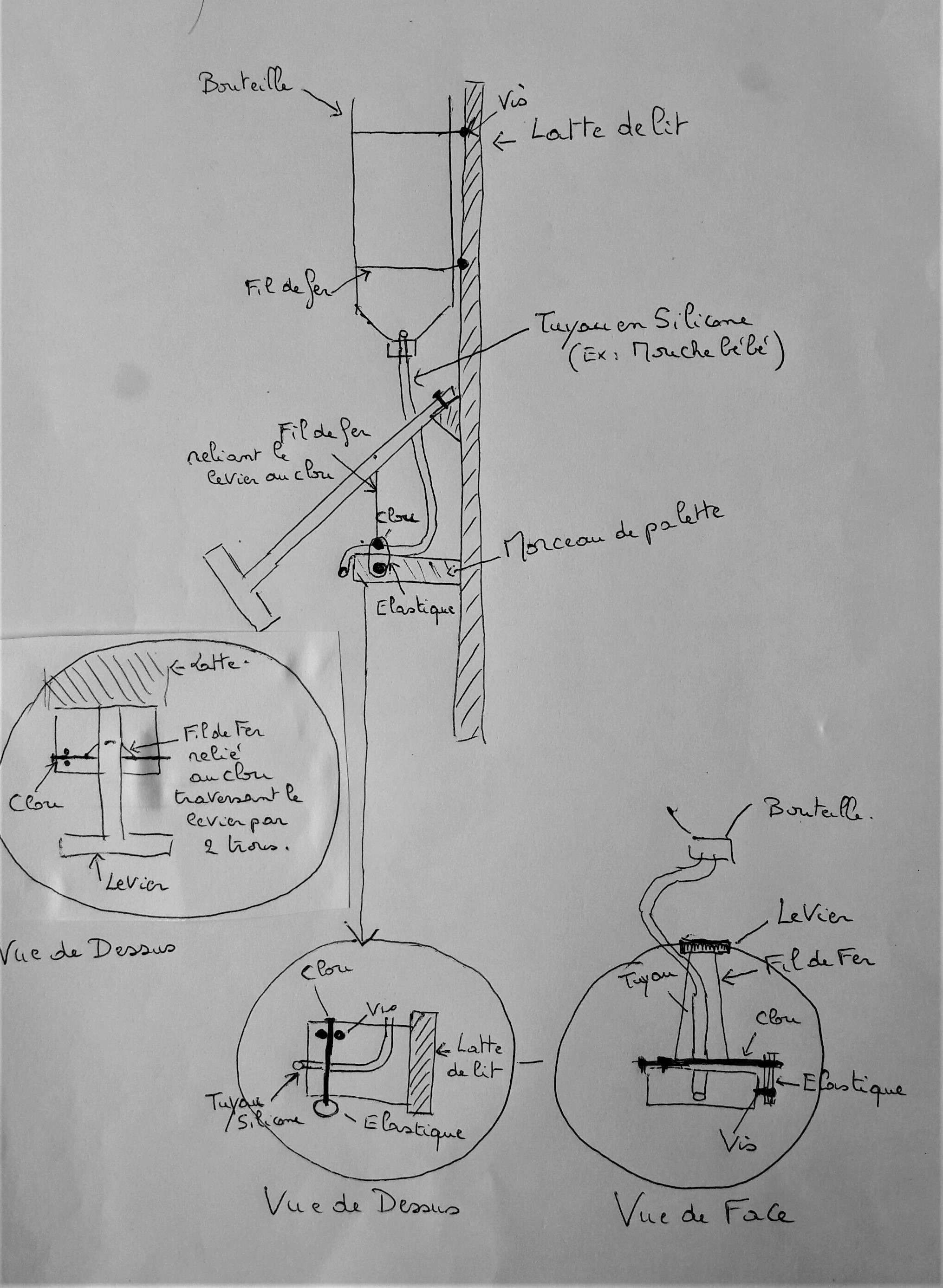
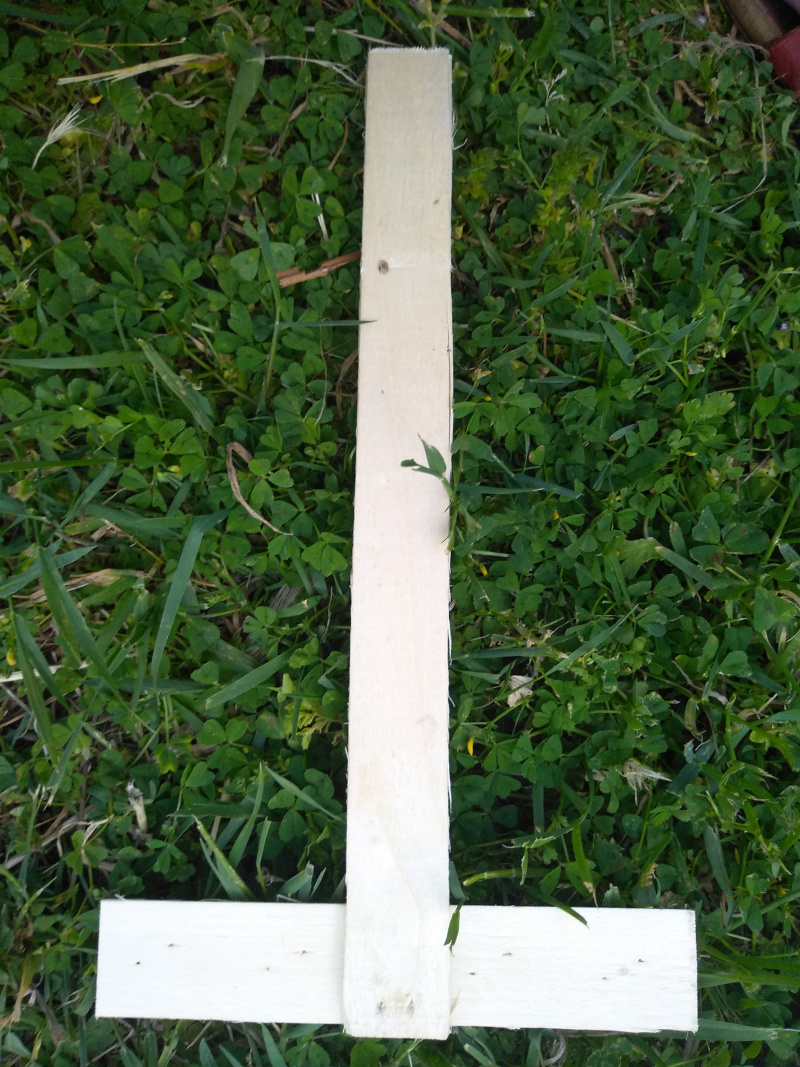
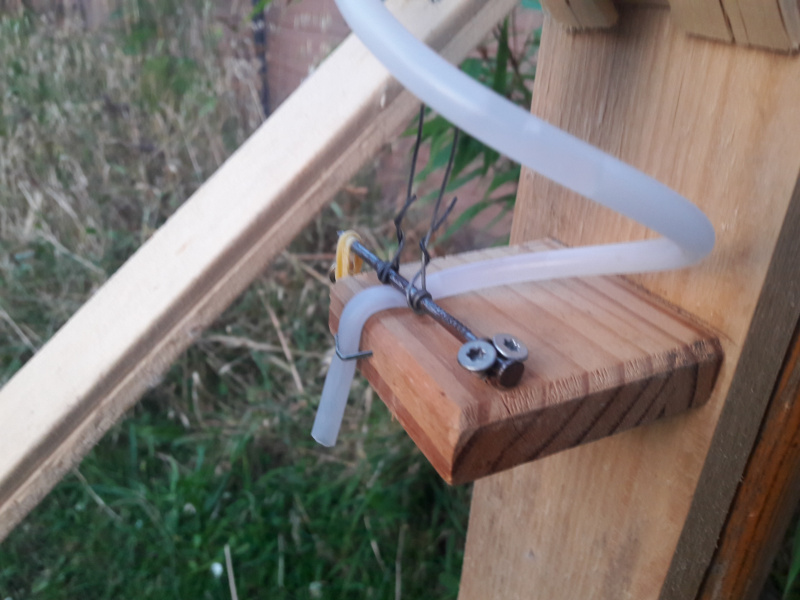
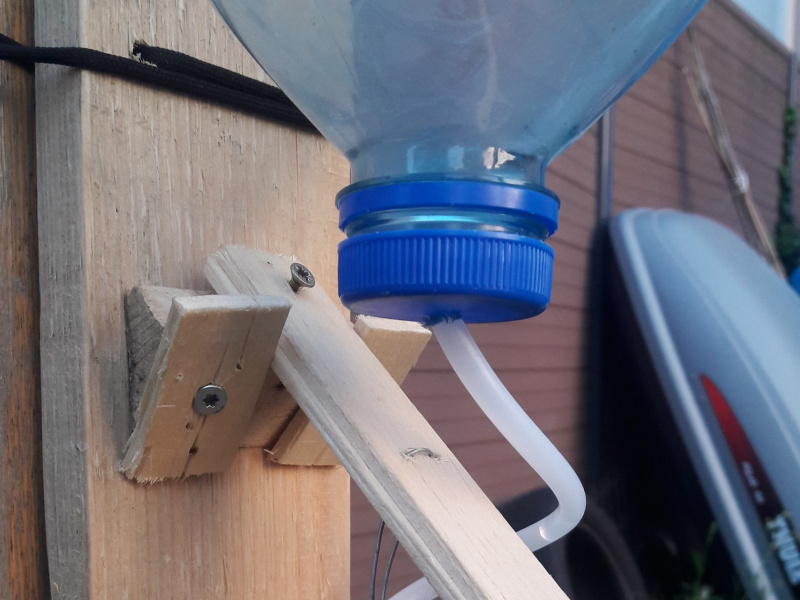
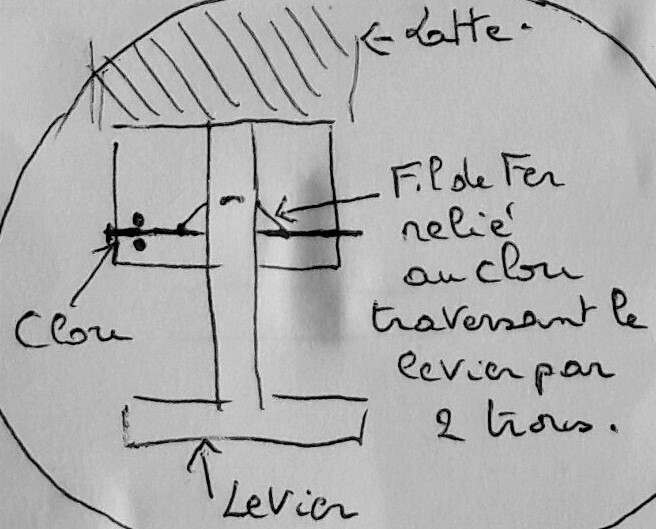
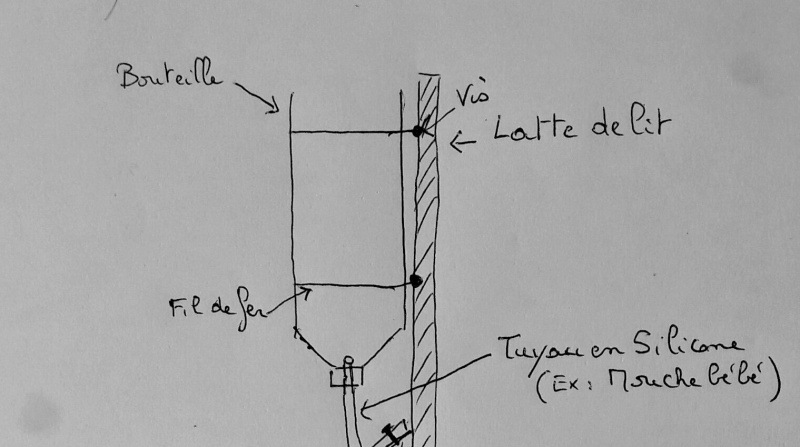
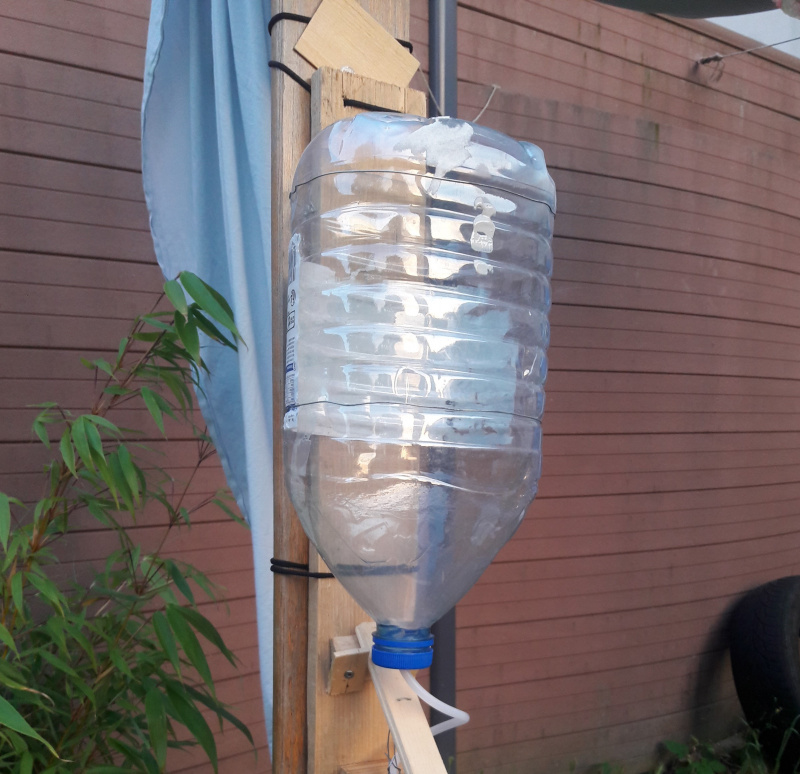
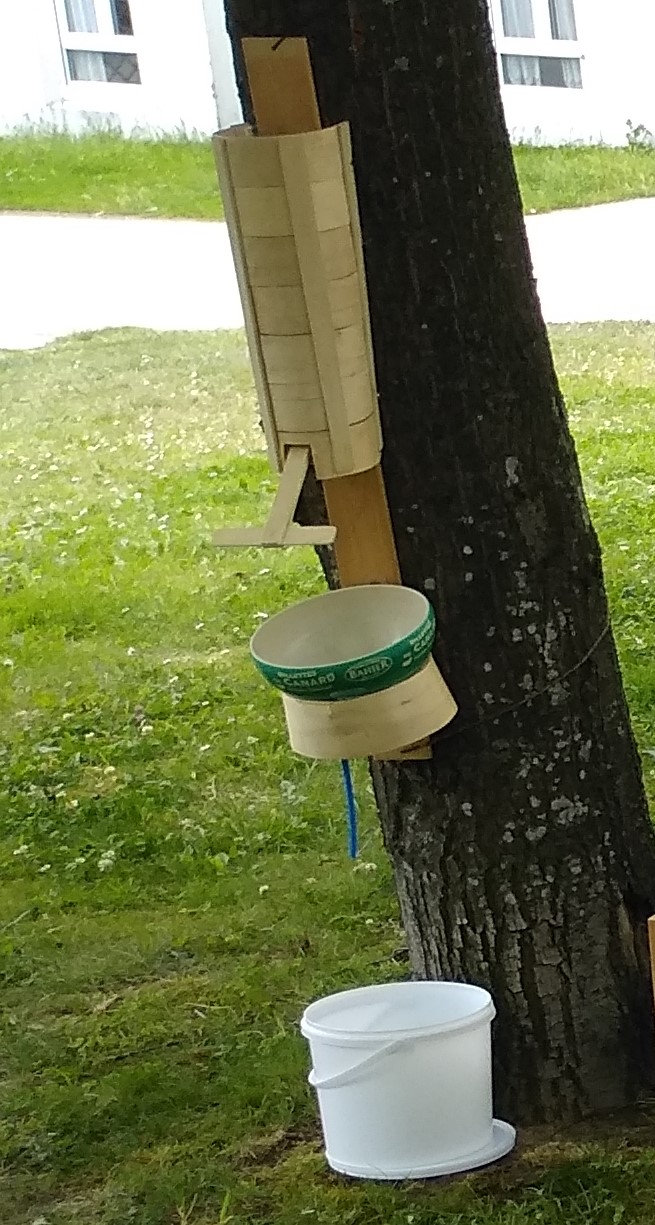
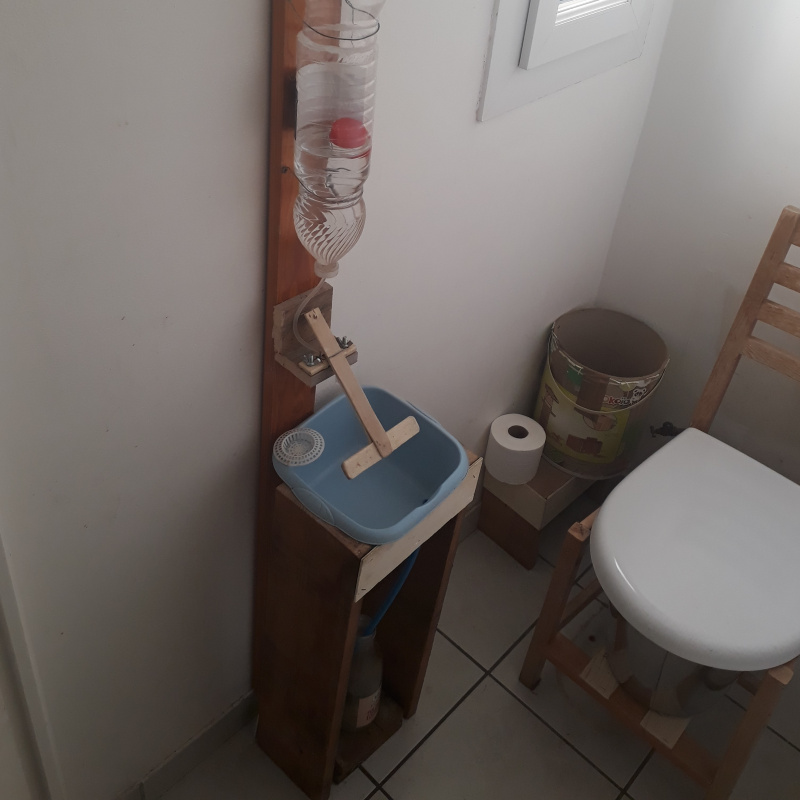
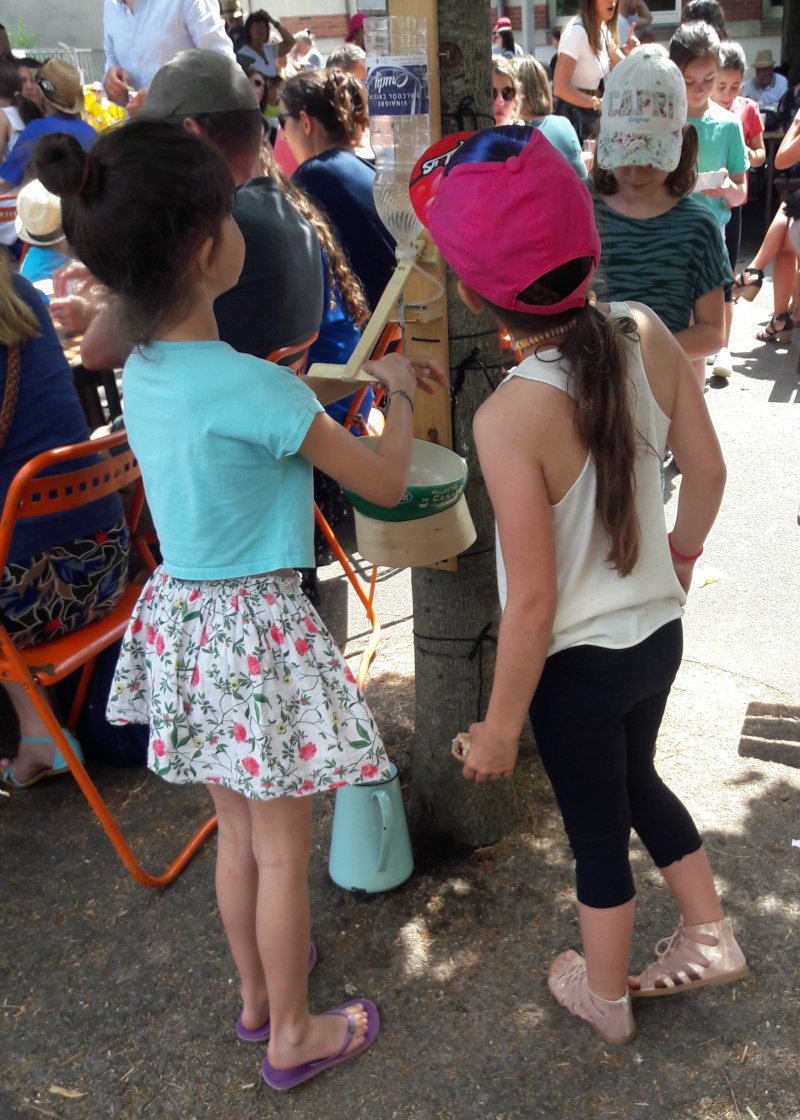
 Français
Français English
English Deutsch
Deutsch Español
Español Italiano
Italiano Português
Português